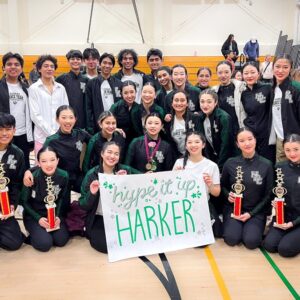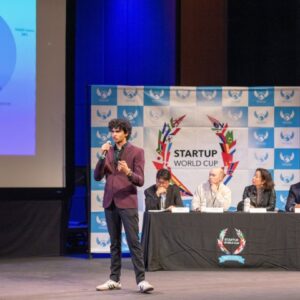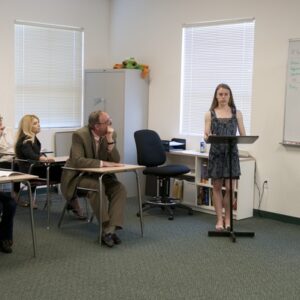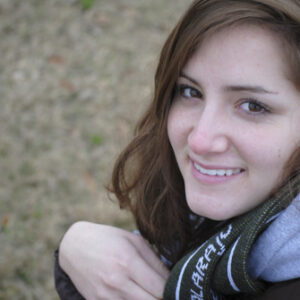Toward the end of the 2009-10 school year, the first recipients of the John Near Scholar Grant were announced. Students Tyler Koteskey, Justine Liu and Olivia Zhu, all grade 12, have been spending the last few months preparing for their projects and are excited to start in earnest.
With the help of mentors, the students chose a specific topic to research with the aid of the grant. Koteskey is examining how the Confederacy incorporated diplomacy, intelligence gathering, military force and economic and political powers into its strategy during the Civil War. Specifically, he will use the Gettysburg campaign as an example of how all of these factors worked in unison to create a military strategy. “The Civil War has been a fascination of mine almost as long as history itself,” he said. “I clearly remember dressing up as a Union cavalry officer for Halloween in second grade.”
Koteskey says the grant money enabled him to travel to Pennsylvania over the summer, where he interviewed professors at the U.S. Army War College and at the U.S. Army Heritage and Education Center. He also visited such landmarks as Antietam National Battlefield and Gettysburg National Military Park.
Liu’s project will investigate the evolving economic relationship between China and the United States, from President Richard Nixon’s visit to China in 1972 to the 1989 Tiananmen Square protests. “I started exploring some of the current challenges facing U.S.-China economic ties last year in Mr. Itokazu’s AP Macroeconomics class for our final paper and for prior debate topics,” Liu said. “I became more curious about how a relationship that has such an impact on U.S. foreign policy today has only developed in the past couple of decades, especially after analyzing the Cold War relations between China and the United States in Mr. Westgate’s AP U.S. History class last year.”
Liu plans to use the grant money to visit the Richard Nixon Library in Yorba Linda, Calif., to look further into his presidency and find out more about his 1972 visit to China.
Zhu plans to study how the military dealt with insubordination during the Vietnam War. “I’ll be analyzing how it was tested and what the response of the military was to acts of disobedience,” she said. “I think insubordination is kind of a cool topic, since there’s always been a sense of pushing the frontier and individualism throughout American history.” The Vietnam War, she added, was also an important moment in American history because of the changing public opinion on war. “It was the first time the UCMJ (Uniform Code of Military Justice) was really tested, so it serves as an important setting for this theme of insubordination.”
For her project, Zhu is considering doing some research at the Presidio in San Francisco, which was once a prison for AWOL soldiers and also a site of major protests conducted by soldiers against the Vietnam War. “If I get the chance, it would also be really great to be able to interview some veterans and hear their side of the story.”








